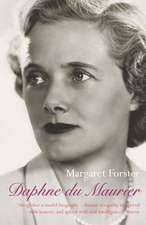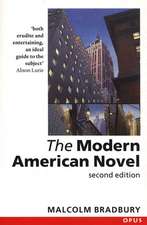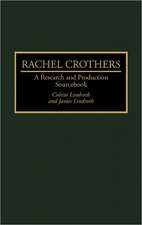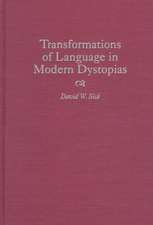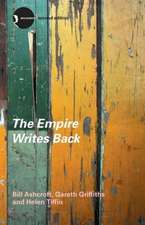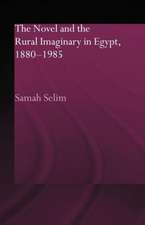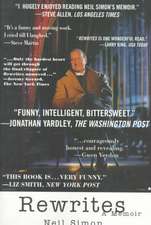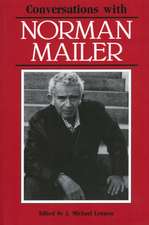The Epic Trickster in American Literature: From Sunjata to So(u)l: Routledge Studies in Twentieth-Century Literature
Autor Gregory E. Rutledgeen Limba Engleză Hardback – 21 dec 2012
| Toate formatele și edițiile | Preț | Express |
|---|---|---|
| Paperback (1) | 416.22 lei 6-8 săpt. | |
| Taylor & Francis – 31 mai 2017 | 416.22 lei 6-8 săpt. | |
| Hardback (1) | 1058.38 lei 6-8 săpt. | |
| Taylor & Francis – 21 dec 2012 | 1058.38 lei 6-8 săpt. |
Din seria Routledge Studies in Twentieth-Century Literature
-
 Preț: 311.41 lei
Preț: 311.41 lei -
 Preț: 310.60 lei
Preț: 310.60 lei -
 Preț: 155.21 lei
Preț: 155.21 lei -
 Preț: 302.95 lei
Preț: 302.95 lei -
 Preț: 310.70 lei
Preț: 310.70 lei - 9%
 Preț: 1005.33 lei
Preț: 1005.33 lei - 18%
 Preț: 706.91 lei
Preț: 706.91 lei -
 Preț: 446.37 lei
Preț: 446.37 lei -
 Preț: 482.78 lei
Preț: 482.78 lei -
 Preț: 277.17 lei
Preț: 277.17 lei - 18%
 Preț: 1052.35 lei
Preț: 1052.35 lei -
 Preț: 305.67 lei
Preț: 305.67 lei - 15%
 Preț: 210.15 lei
Preț: 210.15 lei - 18%
 Preț: 1056.32 lei
Preț: 1056.32 lei -
 Preț: 446.32 lei
Preț: 446.32 lei - 18%
 Preț: 999.98 lei
Preț: 999.98 lei - 18%
 Preț: 1053.16 lei
Preț: 1053.16 lei -
 Preț: 430.96 lei
Preț: 430.96 lei - 18%
 Preț: 1109.18 lei
Preț: 1109.18 lei - 18%
 Preț: 1115.33 lei
Preț: 1115.33 lei - 18%
 Preț: 1118.46 lei
Preț: 1118.46 lei - 18%
 Preț: 1115.33 lei
Preț: 1115.33 lei - 26%
 Preț: 820.73 lei
Preț: 820.73 lei - 18%
 Preț: 1060.19 lei
Preț: 1060.19 lei - 18%
 Preț: 1058.10 lei
Preț: 1058.10 lei -
 Preț: 444.51 lei
Preț: 444.51 lei - 18%
 Preț: 1056.14 lei
Preț: 1056.14 lei -
 Preț: 441.74 lei
Preț: 441.74 lei - 18%
 Preț: 1058.79 lei
Preț: 1058.79 lei - 18%
 Preț: 1057.40 lei
Preț: 1057.40 lei - 18%
 Preț: 1062.26 lei
Preț: 1062.26 lei -
 Preț: 429.23 lei
Preț: 429.23 lei -
 Preț: 463.62 lei
Preț: 463.62 lei - 18%
 Preț: 1053.92 lei
Preț: 1053.92 lei - 18%
 Preț: 1114.98 lei
Preț: 1114.98 lei - 18%
 Preț: 1163.19 lei
Preț: 1163.19 lei -
 Preț: 482.53 lei
Preț: 482.53 lei - 18%
 Preț: 1103.85 lei
Preț: 1103.85 lei -
 Preț: 415.25 lei
Preț: 415.25 lei
Preț: 1058.38 lei
Preț vechi: 1290.70 lei
-18% Nou
Puncte Express: 1588
Preț estimativ în valută:
202.53€ • 216.57$ • 168.86£
202.53€ • 216.57$ • 168.86£
Carte tipărită la comandă
Livrare economică 17 aprilie-01 mai
Preluare comenzi: 021 569.72.76
Specificații
ISBN-13: 9780415636926
ISBN-10: 0415636922
Pagini: 324
Dimensiuni: 152 x 229 x 23 mm
Greutate: 0.56 kg
Ediția:New.
Editura: Taylor & Francis
Colecția Routledge
Seria Routledge Studies in Twentieth-Century Literature
Locul publicării:Oxford, United Kingdom
ISBN-10: 0415636922
Pagini: 324
Dimensiuni: 152 x 229 x 23 mm
Greutate: 0.56 kg
Ediția:New.
Editura: Taylor & Francis
Colecția Routledge
Seria Routledge Studies in Twentieth-Century Literature
Locul publicării:Oxford, United Kingdom
Public țintă
Postgraduate and UndergraduateCuprins
Preface. 1. Introduction 2. Introduction to West/Central African Epic 3. Epic Performance in the American Epic Diaspora 4. All Green with Epic Potential: Chesnutt Goes to the Marrow of Tradition to Re-Construct America’s Epic Body 5. Native Son. Global Warming, Nuclear Winter, and Katrina’s "Folk": African Epic and the Ecological Implications of Wright’s "Blue[s]print" 6. A Beloved, "Ten Times Better" Community: The Epic Trickster and Morrison’s post-Civil Rights Common/Sense 7. Conclusion
Notă biografică
Gregory E. Rutledge is Associate Professor with a joint appointment in the Department of English and the Institute for Ethnic Studies at the University of Nebraska, Lincoln, US. His teaching and research interests are American literature and culture, Afro-futurism, critical race theory, and Afro-Orientalism. He has published scholarship, reviews, reference pieces, fiction, and poetry in African-American Review and Modern Fiction Studies.
Descriere
Just as Africa and the West have traditionally fit into binaries of Darkness/Enlightenment, Savage/Modern, Ugly/Beautiful, and Ritual/Art, among others, much of Western cultural production rests upon the archetypal binary of Trickster/Epic, with trickster aesthetics and commensurate cultural forms characterizing Africa. Challenging this binary and the exceptionalism that underlies anti-hegemonic efforts even today, this book begins with the scholarly foundations that mapped out African trickster continuities in the United States and excavated the aesthetics of traditional African epic performances. Rutledge locates trickster-like capacities within the epic hero archetype (the "epic trickster" paradigm) and constructs an Homeric Diaspora, which is to say that the modern Homeric performance foundation lies at an absolute time and distance away from the ancient storytelling performance needed to understand the cautionary aesthetic inseparable from epic potential. As traditional epic performances demonstrate, unchecked epic trickster dynamism anticipates not only brutal imperialism and creative diversity, but the greatest threat to everyone, an eco-apocalypse. Relying upon the preeminent scholarship on African-American trickster-heroes, traditional African heroic performances, and cultural studies approaches to Greco-Roman epics, Rutledge traces the epic trickster aesthetic through three seminal African-American novels keenly attuned to the American Homeric Diaspora: Charles Chesnutt’s The Marrow of Tradition, Richard Wright’s Native Son, and Toni Morrison’s Beloved.

